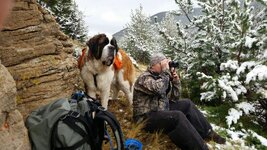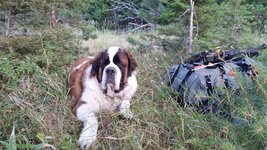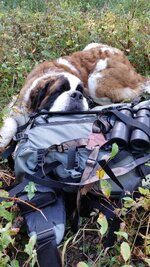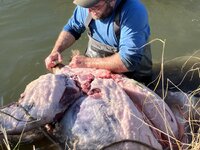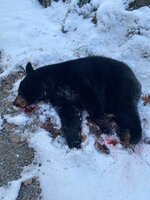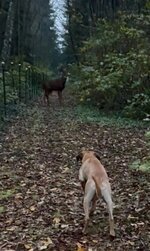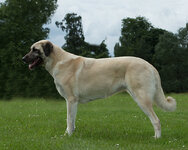The Ri Guy
WKR
Nothing wrong with Cur's for mountain dogs.
Our Blackmouth's are about the most savage dogs I've encountered in the woods to date. It's like they flip a switch from pampered couch princesses at home to ruthless killer hounds in the woods, and they're dead silent on the hunt, always within 30 yards running perimeter.
Our younger blackmouth is only 5, weighs maybe 40# wet, and squares up with anything that moves in the woods whether it be deer, a coyote pack, a bobcat, etc. Our older blackmouth is 13 now, and 1v3'd Pit Bull's a few years back that got through the in-laws fence one day. No exaggeration he went full terminator mode and killed one outright via the throat, fatally injured the second which had to be put down, and ran off the third, after they attacked and killed one of the in-laws dogs.
I like to call them our lightning noodles, those dogs are absurdly fast and agile in a fight and they shoot to kill in a scrap.
Our Blackmouth's are about the most savage dogs I've encountered in the woods to date. It's like they flip a switch from pampered couch princesses at home to ruthless killer hounds in the woods, and they're dead silent on the hunt, always within 30 yards running perimeter.
Our younger blackmouth is only 5, weighs maybe 40# wet, and squares up with anything that moves in the woods whether it be deer, a coyote pack, a bobcat, etc. Our older blackmouth is 13 now, and 1v3'd Pit Bull's a few years back that got through the in-laws fence one day. No exaggeration he went full terminator mode and killed one outright via the throat, fatally injured the second which had to be put down, and ran off the third, after they attacked and killed one of the in-laws dogs.
I like to call them our lightning noodles, those dogs are absurdly fast and agile in a fight and they shoot to kill in a scrap.

